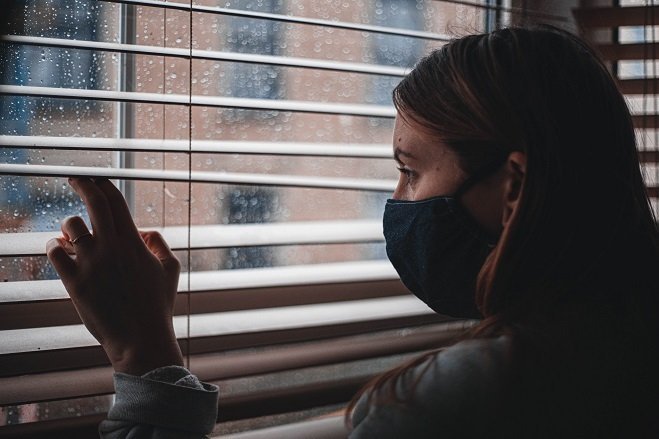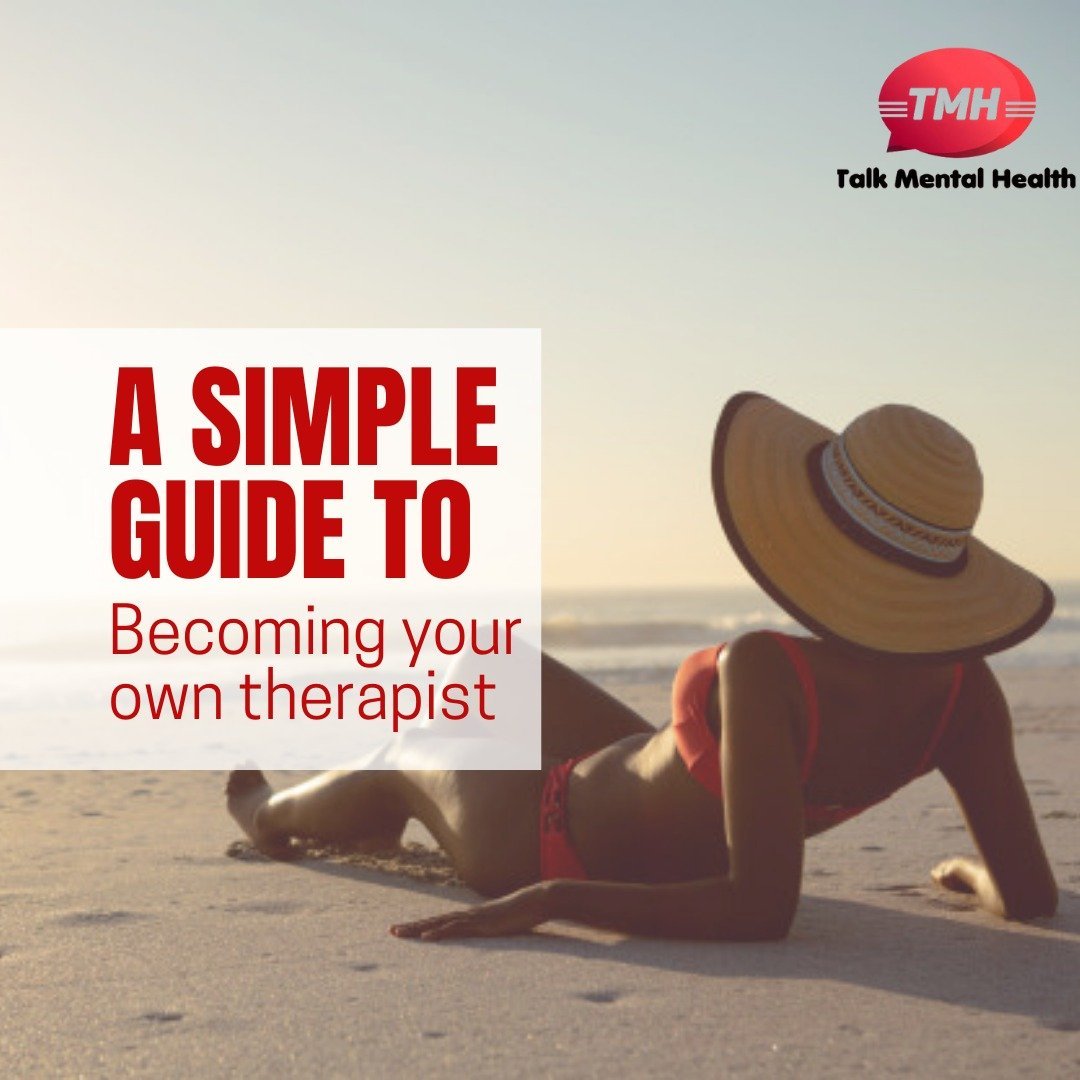Everyone experiences fear and anxiety. They are evidence of your will to live, to prosper, and to transcend the things that threaten you—anxiety is a life force.
- What might your life be like if you never felt anxious?
- If you never felt anxious, what would help you work harder to prepare for an exam or presentation?
- If you never felt anxious, what would teach you to cope more effectively with a challenge or threat if it happened again?
- What might happen if you weren’t able to avoid what you believed to be dangerous?
- If you couldn’t avoid what was dangerous, how would you survive to see another day, for that matter?
Life consists of ups and downs, threats and dangers. Nature has given us anxiety to be utilized in moderation to plan, prepare and protect ourselves from future threats. Anxiety signals us to focus our attention and energies on what might happen, so when we feel anxious, our minds and bodies move into a state of vigilance, and we begin to prepare for the worst.
It is a complex emotional response that is similar to fear. Both originate in portions of the brain designed to help all animals deal with danger and both cause similar physiological and behavioral reactions. However, fear and anxiety differ, in that fear is typically associated with a clear, present, and identifiable threat, whereas anxiety occurs in the absence of immediate peril.
There are three ways you could respond to anxiety, either with your mind (Asking what if questions like What if X happens? What if Y goes wrong? What if Z doesn’t turn out like I want/need/expect it to?), your body (e.g., when you’re afraid, you might feel short of breath and your heart might race) or your actions (e.g. getting angry unnecessarily)
TYPES OF ANXIETY DISORDERS
Many people feel anxious quite often, especially when under some kind of stress but when anxiety is more intense, lasting longer than 6 months and interfering significantly with important aspects of your life, then you may have an anxiety disorder.
Generalized Anxiety Disorder
This is a consistent anxiety that hangs around and isn’t triggered by any particular cause. You just wake up daily anticipating negative outcomes.
Meet Temilade. She is a champion worrier. She worries about the same things that other people do—finances, relationships, health, world events—but she worries too much and for too long. She works only part-time, because she feels overwhelmed by her anxiety and worries. She doesn’t sleep well, because the moment she lies down, she starts worrying about the things she needs to do the next day. She feels irritable all the time and argues with her boyfriend over little things. She has chronic headaches and diarrhea. She would like to find a different job, but every time she thinks about looking, she starts to worry that she will never find something, and so she puts off looking.
Panic Disorder
Panic disorder occurs when you experience recurring unexpected panic attacks – an overwhelming combination of physical and psychological distress. People with the disorder live in fear of having a panic attack. You may be having a panic attack when you feel sudden, overwhelming terror that has no obvious cause and may experience physical symptoms, such as a racing heart, breathing difficulties, and sweating.
Zainab has been experiencing different forms of pressure from the home and work front, which began to take a toll on her sleep. One morning on the way to work, as she climbed the staircase heading to her office, she had her first panic attack. She clutched the handrail tightly, because she felt intensely dizzy and short of breath. Terrified that she would faint and fall down the stairs, Zainab ran the last few steps off it to safety. She managed to work through the day, but over the next few weeks, she began to have panic attacks in other situations, such as while walking on an escalator, and driving certain stretches of highway. Most of her panic attacks have seemed to come “out of the blue,” and Zainab has begun to worry that she might feel intensely dizzy at any time and in any situation.
Social Anxiety Disorder
This happens when a person has significant anxiety and discomfort about being embarrassed, humiliated, rejected or looked down on in social interactions. People with this disorder will try to avoid the situation or endure it with great anxiety. An example is Halima, a school teacher, who has always been anxious about speaking in front of people. She worries intensely and excessively about what others think of her, particularly when she’s in front of a group but also when she’s talking to people whom she respects or who are in positions of authority, such as the principal at her school. After one embarrassing moment during a presentation, she began to worry about a reoccurrence and shied away from picking up any speaking activities.
Obsessive-Compulsive Disorder
This is when your brain creates obsessive thoughts or doubts that won’t go away, to the point that you spend hours each day focused on them. Obsessions can sometimes lead a person to create elaborate rituals that must be carried out to reduce anxiety. Consider Jadesola, who thought obsessively about all of the germs in her house and spent hours washing her hands and cleaning certain areas of her home. Then, after she finished, she’d start over because she had doubts that led her to think that she might have touched something that contaminated everything that she’d cleaned.
Specific Phobia
A specific phobia is excessive and persistent fear of a specific object, situation or activity that is generally not harmful. Patients know their fear is excessive, but they can’t overcome it. These fears cause such distress that some people go to extreme lengths to avoid what they fear.e,g the fear of flying, walking across bridges etc.
Uche still remembers vividly the day, fifteen years ago, when her fear of cats started. Her mum sent her on an errand within the neighborhood. Immediately she stepped out of the house, she saw a cat clutching a dog by its head, scratching viciously at the dog’s eyes and ears. The cat screeched as the dog yelped and ran around, trying to shake the cat from its head. Uche was paralyzed with fear, but unable to take her eyes off the terrible battle before her.
Since then, Uche has avoided cats and any situation in which she might encounter one – even movies or TV commercials. She walks away from conversations about cats, and even crosses the street when she sees a pet shop ahead.
Post-Traumatic Stress Disorder
If you have post-traumatic stress disorder, you’ve become anxious and fearful after a traumatic event that was outside the normal range of human experience. Such traumatic events would create intense fear, terror, and hopelessness in anyone, and they include natural disasters, such as earthquakes, tornadoes, and fires; car and plane crashes; and violent crimes against you or your immediate family, such as rape or other assault. Symptoms of post-traumatic stress disorder can appear immediately or shortly after the traumatic event or can be delayed, beginning more than six months afterward.
Coping skills for anxiety
Avoiding your anxious response and the many situations and activities in which it arises paints you into a corner. In fact, your anxiety isn’t the problem; your desire to avoid feeling anxious at all costs is the problem. Avoiding your anxious response makes it difficult for you to live a full and meaningful life. Below are some different ways you can find relief and start managing anxiety and improve your mental health:
- Question your thought pattern. Negative thoughts can take root in your mind and distort the severity of the situation. In fact, some of the most creative people are also sometimes the most anxious because their creativity gives them the ability to dwell on extremely frightening thoughts and images. One way is to challenge your fears, ask if they’re true, and see where you can take back control.
- Improve Your Time Management Skills. Many people become stressed and anxious because they feel that they only have so little time to do what they need to do each day. Instead, write out and schedule everything that needs to get done each day and start making priorities.
Once you learn how to manage your time better, you’ll feel less stressed, anxious, and pressured to get things done at the last minute, and most likely, you’ll have some more time to do other things that you like and spend time with the people you care about which can then benefit your mental health. - Use aromatherapy. This uses fragrant essential oils, incense or candles to promote health and well-being as they are thought to help activate certain receptors in your brain, potentially easing anxiety by helping you relax, sleep and reduce heart rate/blood presssure
The oils may be inhaled directly or added to a warm bath or diffuser. Scents like lavender, chamomile, and sandalwood can be very soothing. - Diet and exercise. Chemicals in processed foods such as artificial flavorings, artificial colorings, and preservatives may cause mood changes in some people. A high-sugar diet may also impact temperament. If your anxiety worsens after eating, check your eating habits. Stay hydrated, eliminate processed foods, and eat a healthy diet rich in complex carbohydrates, fruits and vegetables, and lean proteins.
Exercise releases naturally-occurring chemicals in the body known as endorphins, which can make you feel great during and after a workout. Getting an adequate amount of physical activity can have tremendous positive benefits not just for your physical health but your mental health as well. - Ask for help.
While the remedies above may help ease anxiety, they don’t replace professional help. Increased anxiety may require therapy or prescription medication so don’t hesitate to talk to a psychiatrist about your concerns.
Counseling and therapy are extremely effective for a person’s mental health because they teach individuals the skills they need to cope with their emotions and the problems that they currently face as well as the ones that will arise in the future.


